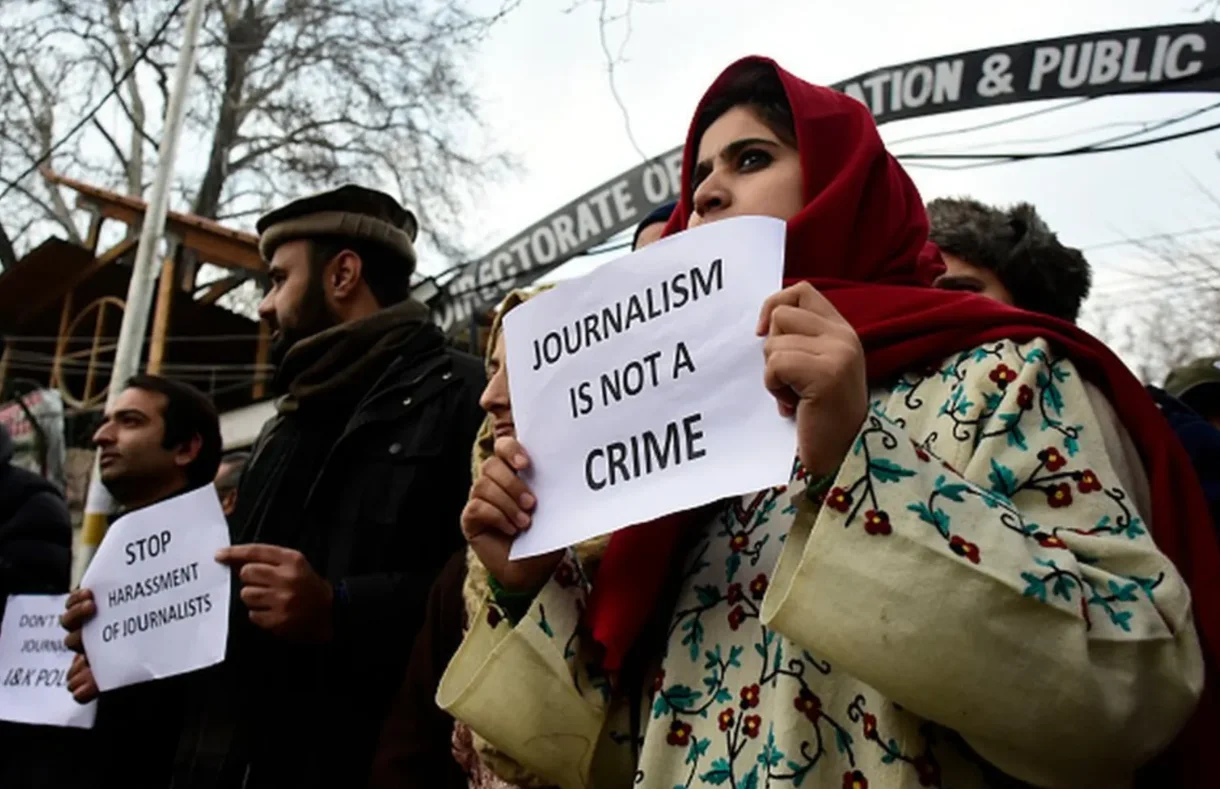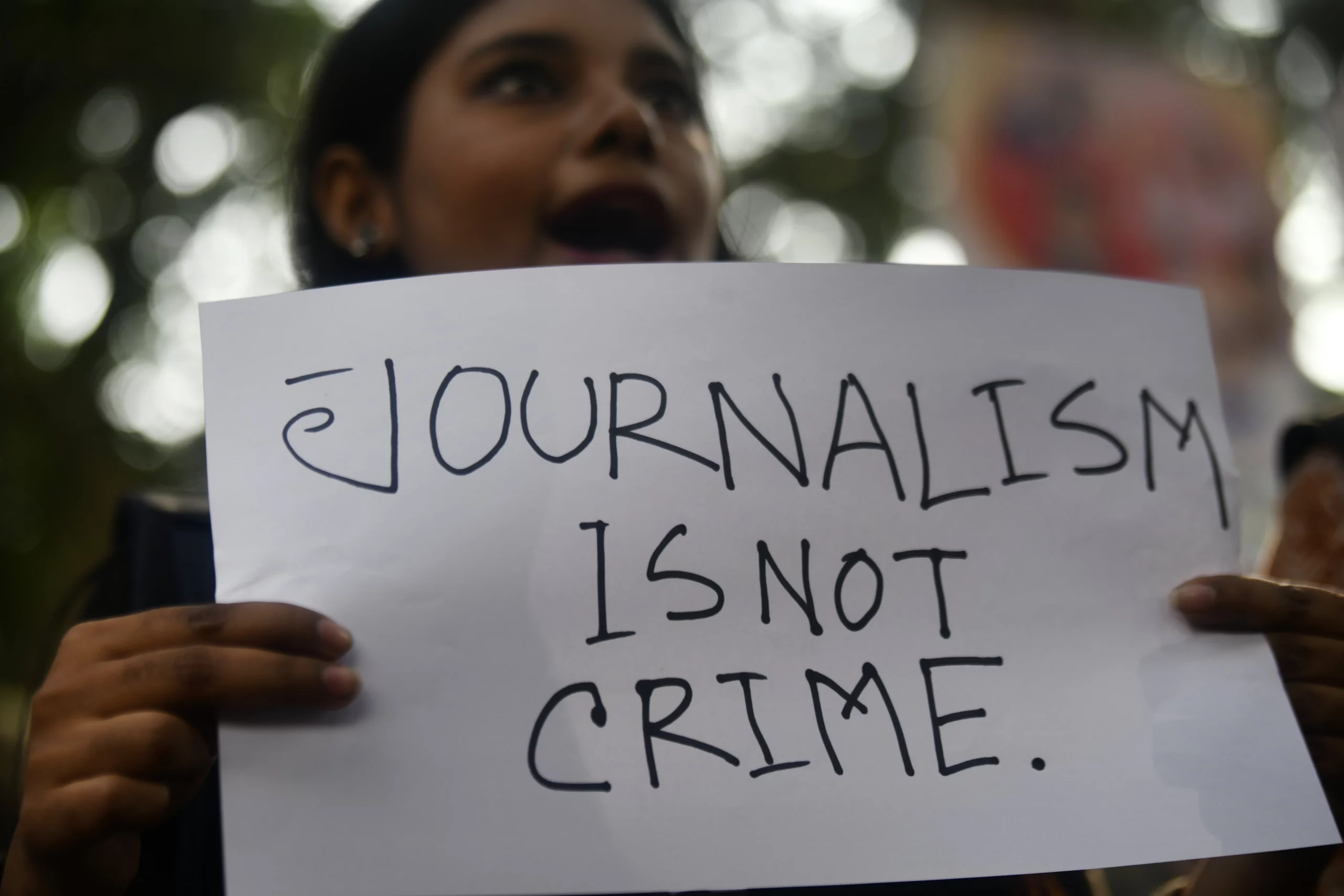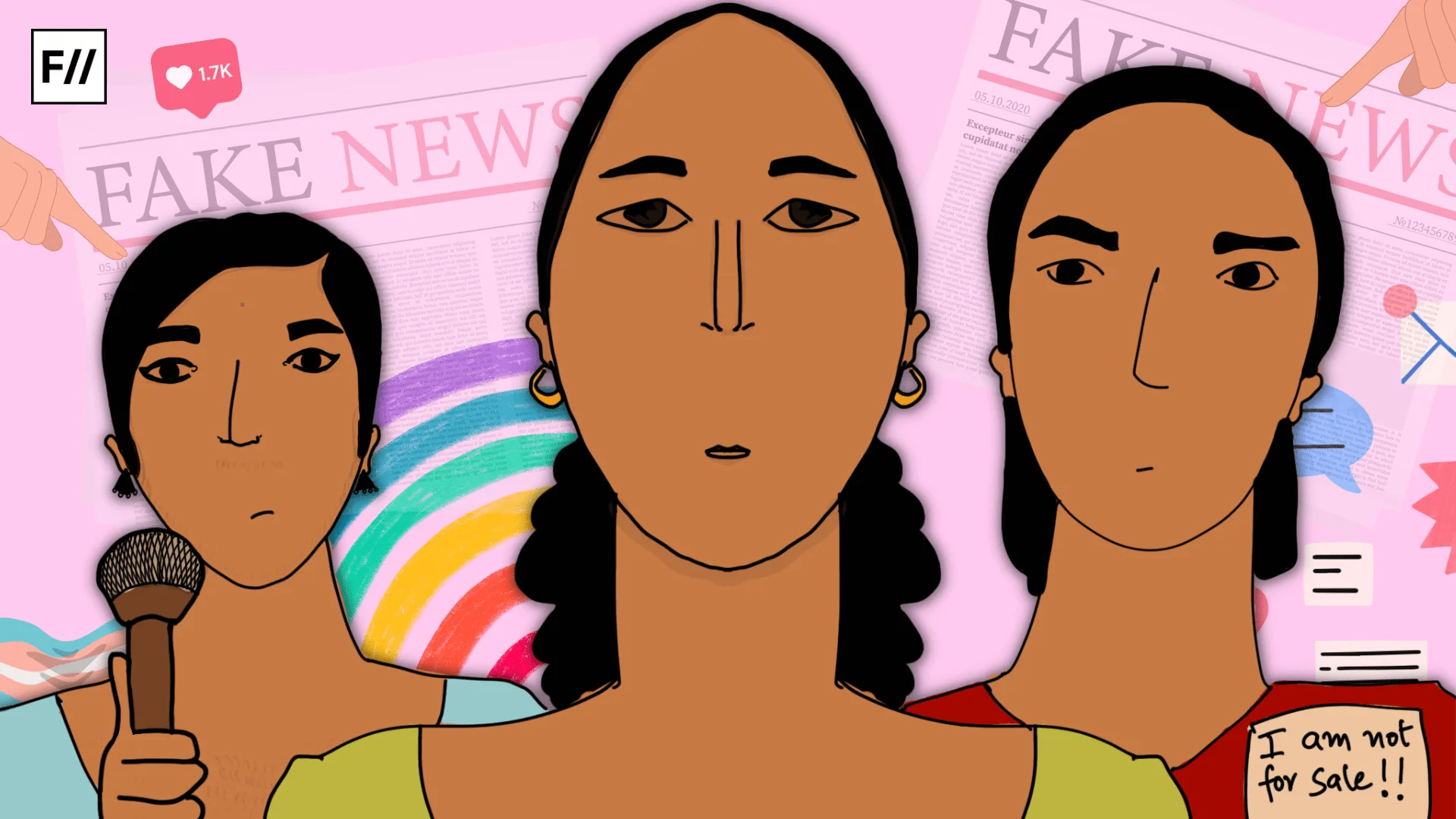Tabiya, 22, a young female student opted for a journalism course in Srinagar’s Women’s College. She hoped to be journalist. However, seeing the Press Freedom Index of India demotivated her. She, as a young journalist, is being taught that journalism is not a crime in a vibrant democracy like India.
However, in the current prevailing situation, journalism is under censorship and is questioned. While talking with Feminism in India, Tabiya said that seeing X accounts being blocked is disheartening and undermines her motivation to pursue this field.
Be it independent media houses or national/international news outlets, journalists should be free to bring the real and trusted form of news to the world. ‘Blocking X accounts of independent media outlets is becoming a barrier in society,‘ she told Feminism in India.

Following the recent war between India and Pakistan, after the Pahalgam terror attack which claimed the lives of 26 Indian tourists, the Modi government had withheld X accounts (formerly Twitter) of various independent media outlets and journalists across India.
Dozens of powerful independent media houses became the target of digital censorship amid the war crisis, BBC Urdu, The Kashmiriyat, Free Press Kashmir, Outlook Magazine India and Maktoob, platforms all known for their critical coverage and giving space to the news and stories of marginalised communities have been targeted. Particularly during times of war when independent reporting is essential, this widespread disabling of accounts raises grave concerns about press freedom and the right to expression in India. Free speech advocates have criticised the government’s move for its scope, which affects thousands of accounts without any particular reason, and for its lack of transparency regarding the legal demands.
The Srinagar Member of Parliament, Aga Syed Ruhullah Mehdi said that the sudden and arbitrary suspension of X (Twitter) accounts belonging to independent news organisations like Kashmir Life, The Kashmiriyat, Free Press Kashmir, and several Kashmiri journalists is deeply troubling. These are among the few remaining platforms committed to reporting ground realities, and their erasure sends a chilling message that truth-telling in Kashmir is punishable.
These are among the few remaining platforms committed to reporting ground realities, and their erasure sends a chilling message that truth-telling in Kashmir is punishable.
On the condition of anonymity, a female journalist with The Kashmiriyat told Feminism in India, ‘withholding our handle on X amid the war felt like a deliberate attempt to silence credible, independent journalism. Unlike Godi media, we don’t echo power, we question it. Our stories reflect the voices of the unheard, especially from conflict-hit regions like Kashmir. Silencing us is not just censorship, it’s an attack on truth and the people’s right to know. It’s disturbing how platforms claim to support free speech but end up muting those who challenge dominant narratives.‘
Tabiya was all set to do an internship program with The Kashmiriyat news outlet, but ever since it being withheld in India, her hopes were dashed. ‘Independent media outlets like The Kashmiriyat, Free Press Kashmir were the voice of voiceless. Where do we read powerful reportage now?‘ Tabiya asked.
8,000 accounts withheld amid rising tensions between India and Pakistan
The Indian government has ordered Twitter, the social media site controlled by Elon Musk and now known as X, to block over 8,000 accounts, including those of certain ‘international news organisations’ and ‘prominent X users,’ for breaking local regulations, rules. The official account of X’s Global Government Affairs shared the message, stating that it has begun the process of withholding the X accounts.

The order has left hundreds of female journalists badly impacted, one among them is the managing editor of The Kashmir Times, an English-language newspaper and the author of A Dismantled State: The Untold Story of Kashmir After Article 370, Anuradha Bhasin.
‘The media crackdown is ongoing, but the scale is very high right now. There is mass blocking of accounts, particularly those journalists who don’t agree with the government. Withholding independent media outlets like The Wire, News 4, BBC Urdu and others goes against free speech and the freedom of press,‘ she told Feminism in India.
She added that they were withheld because the Government wants to build their own narrative, and they don’t want to be questioned about security lapses.
Tabiya said that people often find national news to be biased compared to independent media outlets across India. Questioning the mainstream media’s credibility, she said, ‘If national media had presented real and unbiased news, there would have been less reason for us to rely on independent sources.’ Tabiya further said that In times of war crisis, independent media outlets disseminated information based on facts.
Can the media be banned in a vibrant democracy?
Section 69-A of the Information Technology Act of 2000 gives the government authority to prohibit or block internet information for a variety of reasons, including risks to India’s sovereignty, national security, defence, foreign relations, public order, and offences linked to incitement. But according to the Indian Supreme Court, such a blocking must be justified and documented in writing.
Tabiya further said that In times of war crisis, independent media outlets disseminated information based on facts.
The Kashmiriyat news portal issued a public statement, which read: ‘We just tried to access our X (Twitter) handle, only to find that our account has been withheld in India. It’s hard to put into words. This feels like an erasure of years of work, of the countless hours we poured into honest, often difficult journalism. It’s not just a platform that’s disappeared; it’s a part of the journey of how Kashmiri journalism evolved these years. To be silenced without warning hurts, deeply. If our work has meant something to you, we ask you to help keep it alive by sharing links to our stories on your profiles, timelines, and circles. Let our voice travel, even if it’s been blocked.‘
On May 9, the Indian authorities blocked The Wire‘s website. It was blocked as per the order of the Ministry of Electronics and Information Technology under the IT Act, 2000. According to an internet service provider, after more than 12 hours, readers could not access it’s website.

Founding editor of The Wire, Siddharth Varadarajan, accused India’s major television news channels of indulging in ‘fake news‘ and ‘dangerous reporting‘ in sensitive times. He added that The Wire has been ‘one of the largest Indian news platforms that has been reporting on the emerging situation with responsibility and restraint. The blocking order is unconstitutional. It is an attack on press freedom and on the right of every Indian to access information.‘
In recent years, India’s ranking has been declining, going from 140 in 2019 to 142 in 2020 and 2021, then to 150 in 2022 and 161 in 2023. Pakistan, India’s neighbour, dropped from 150 in 2023 and 157 in 2022 to 158, revealed the data of Press freedom Index.




